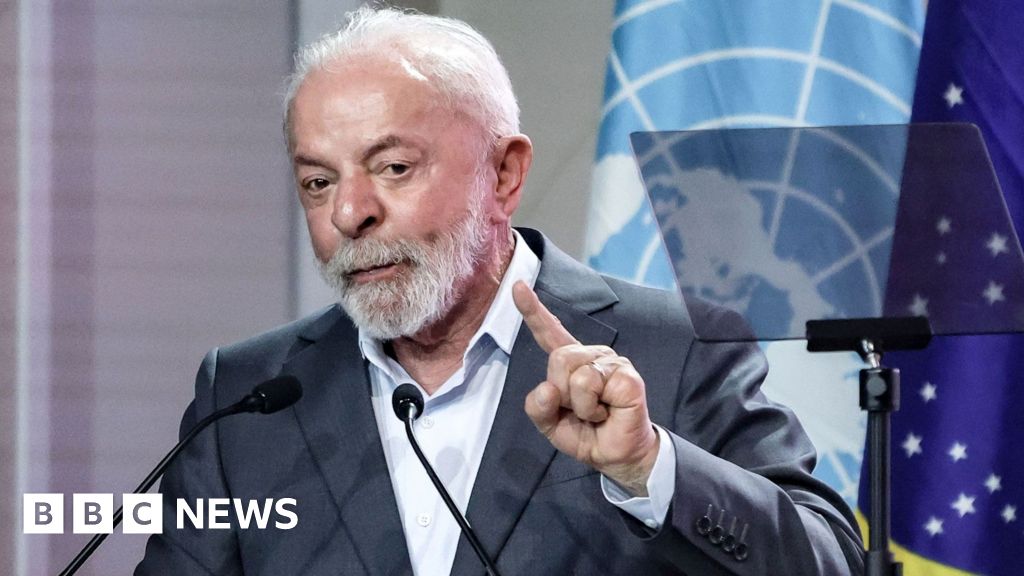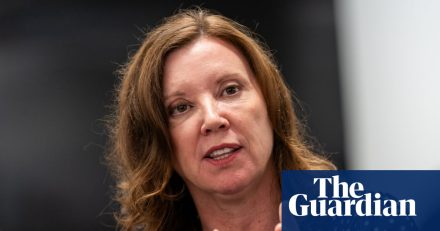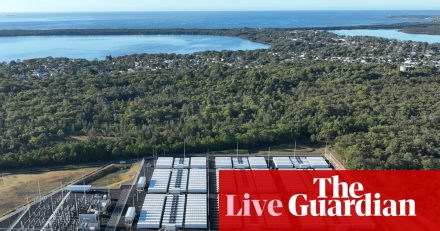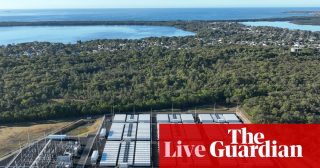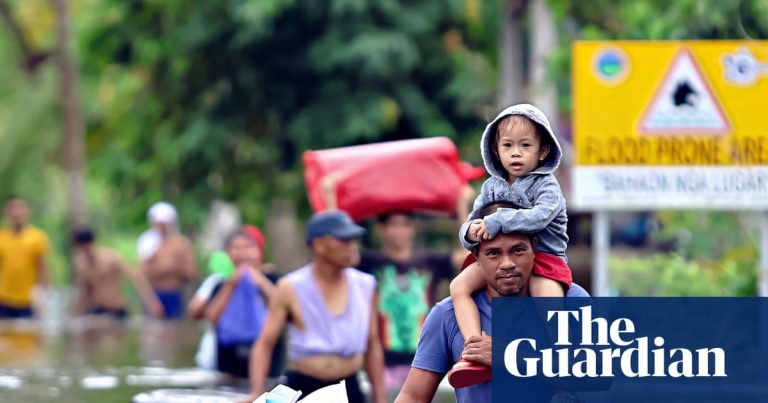By Georgina Rannard, Climate and science reporter, Belém, Brazil
The world must “defeat” climate denialism and fight fake news, Brazil’s President Luiz Inácio Lula da Silva told the opening of the UN climate talks, calling for truth in an era of misinformation and rejection of scientific evidence. He made thinly veiled references to US President Donald Trump, who in September called climate change “a con job”.
COP30 began in Belém, on the edge of the Amazon, with thousands of delegates arriving at a heavily air-conditioned former aerodrome venue. Some were housed in shipping containers and on cruise ships moored on the riverside. Members of the Guajajara indigenous group gave a traditional welcome performance.
Lula declared “COP30 will be the COP of truth” and said those who “control the algorithms, sow hatred and spread fear” must be defeated. He urged an end to denialism and misinformation that undermine climate action.
The talks are unfolding against a fraught political backdrop. The US has sent no senior officials and its administration has signalled strong support for fossil fuels, cancelling more than $13bn in renewable energy funding and moving to open more areas to oil and gas exploration. That stance puts Washington at odds with most countries committed to cutting greenhouse gas emissions and investing in green energy.
Some delegates fear the US could try to undermine the talks; earlier environmental negotiations have faltered amid US pressure, which some participants called “bully-boy tactics”. Despite this, UN climate chief Simon Stiell noted progress over the last decade in reducing emissions and urged nations to stop “squabbling”, warning that climate disasters are already shaving double-digit percentages off some economies.
Brazil is using its COP presidency to push for progress on earlier promises: phasing out fossil fuels, securing finance for vulnerable developing countries, and protecting nature. President Lula’s flagship proposal is the Tropical Forest Forever Facility (TFFF), a fund intended to raise $125bn to protect tropical forests globally. Fundraising started slowly: UK Prime Minister Keir Starmer announced at the last minute that the UK would not pledge public money, though UK climate envoy Rachel Kyte told the BBC the fund is “a brilliant idea” and the UK “will make the investment at some point”.
After a prolonged negotiation, nations agreed a conference agenda that includes examining whether countries can still aim to limit global warming to 1.5C above pre-industrial levels — a goal championed by the Alliance of Small Island States (AOSIS) and other frontline groups. Recent UN statements have accepted that temporarily overshooting 1.5C may be inevitable. UN Secretary-General António Guterres called the failure to limit warming to 1.5C a “moral failure and deadly negligence”.
Additional reporting by Esme Stallard
